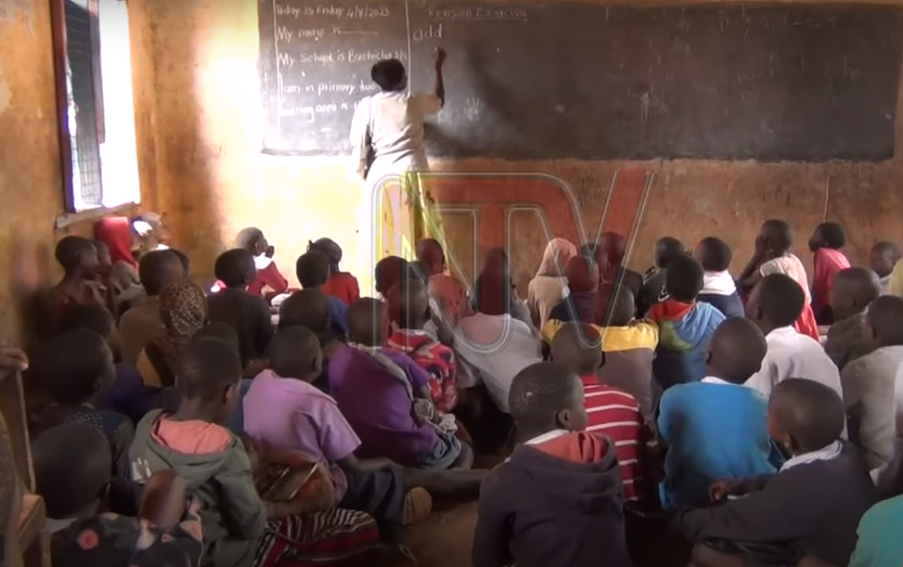Primary schools to start lessons against corruption, govt says

Pupils attend a class in Uganda in the past. PHOTO/FILE/SCREENGRAB
What you need to know:
- The new curriculum creates awareness of all types of corruption and also sensitises young people about values of integrity in their daily life, according to government.
The government through the Directorate of Ethics and Integrity (DEI) has said all primary schools should have anti-corruption lessons in their syllabus. The move aims at fighting corruption from the grassroots.
Speaking to the media during a review of the United Nations Convention Against Corruption in Kampala yesterday, the commissioner for communication and information at DEI, Mr Nicholas Abola, said the directorate is now “focusing on building the characters of young people so that they are not tempted to indulge in corruption”.
Mr Abola added that they worked closely with the Education ministry in the formulation of the recent changes in the curriculum for primary and secondary schools.
“Together with the Education ministry, we have started forming clubs where they [children] can be taught about corruption and to encourage others to promote issues of ethics,” he said.
Ms Sania Nagaddya, a teacher, said although they have not yet enrolled corruption lessons in their syllabus, schools have managed to include topics, which are incorporating corruption issues.
“We have also introduced patriotic clubs which are sensitising children on ethics and integrity. This will help to build a better future generation,” she said.
The spokesperson of the Ministry of Education and Sports, Mr Dennis Mujimba, yesterday said the new curriculum, which was introduced in 2020, involves several aspects of life with the fight against corruption incorporated.
“The new curriculum creates awareness of all types of corruption and also sensitises young people about values of integrity in their daily life,” he said.
The state minister for Ethics and Integrity, Ms Rose Lilly Akello, revealed that a lack of sufficient evidence is still challenging the asset recovery system.
“Although we have made some recoveries, there are still challenges in securing evidence in corruption cases,” she said.
UN convention on corruption
The United Nations Convention Against Corruption is the only legally binding international anti-corruption multilateral treaty.
Negotiated by member states of the United Nations, it was adopted by the UN General Assembly in October 2003 and entered into force in December 2005.
Uganda signed the UNCAC in 2003 and ratified it in September 2004. Since ratification, numerous efforts have been undertaken to ensure its implementation.




